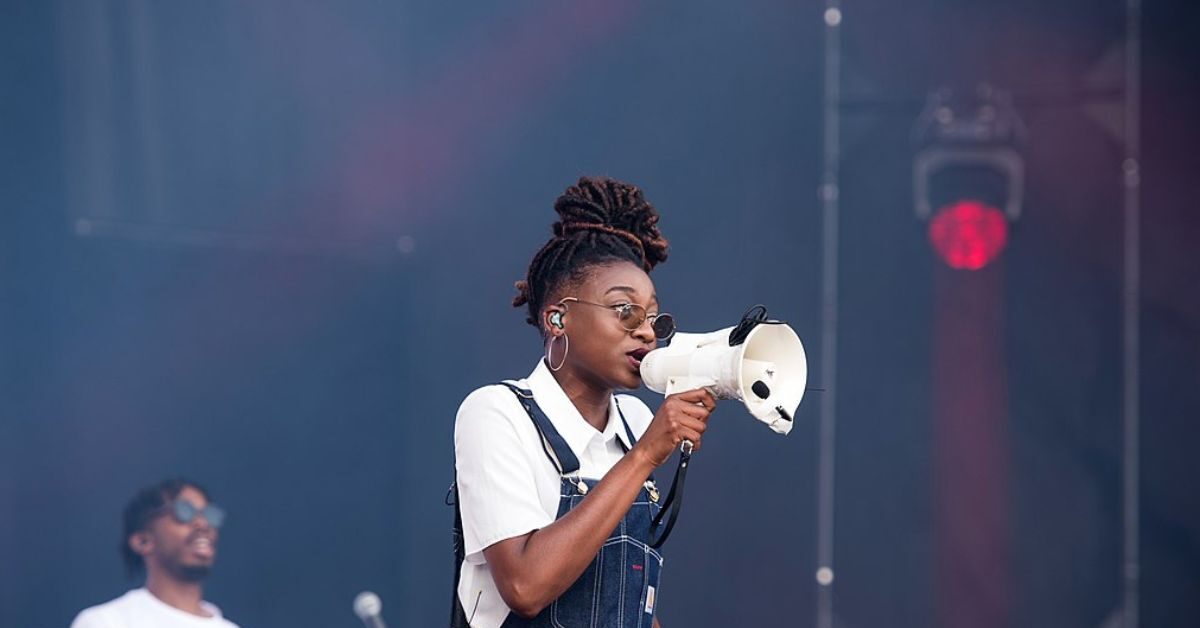John Street, University of East Anglia
Speaking after she won the 2022 Mercury Music Prize, Simbiatu Abisola Abiola Ajikawo, aka Little Simz, was clearly honoured to be given the award. It wasn’t about the money (£25,000), or at least it wasn’t just about the money. It was about the fact that the prize was a recognition by her peers of the quality of her album Sometimes I Might Be Introvert.
Born to Nigerian parents, Little Simz grew up on a north London council estate. She credits her early musical ambitions and their development to the local youth club. As well as her music career, she has acted on the BBC and E4.
Unlike the Brit she won earlier this year for best new artist, the Mercury Prize is less obviously corporate, less about the music industry congratulating and promoting itself. It was set up as a musical version of the Booker prize.
And where the Brits have historically underrepresented Black music (which prompted the creation of the MOBO awards) and women, the Mercury prize has a record for providing a fairer distribution. Solo women winners include Arlo Parks, Ms Dynamite, Speech Debelle and PJ Harvey (who’s won it twice). Among the solo male winners are Dave, Sampha, Skepta, Benjamin Clementine, Talvin Singh and Dizzee Rascal.
The Mercury is also notable for giving the award to debut records and records released on independent labels. Although Sometimes I Might Be Introvert is Little Simz’ fourth album, it is very much a product of the independent sector, being released on her own music label, Age 101.
The prize’s broad shortlist also endeavours to acknowledge the diverse forms of music, from the big sellers (this year Harry Styles and Sam Fender) to the smaller, independent acts (the jazz musician Fergus McCreadie and the Cornish language artist Gwenno).
No one type of music (for example, rock) dominates. This makes it different from the Booker in which literary fiction is the standard, at the cost of genre fiction, whether that’s historical, sci-fi or crime writing.
Glorious, genre busting, independent
Why did Little Simz win? Not because Sometimes I Feel Introvert was “the best” British or Irish album of the year in any objective sense, and not because it was the most successful in commercial terms. Little Simz, while admired by critics, has not enjoyed a great deal of chart success.
It was precisely because it was not a commercial album that had sold millions. Sam Fender and Harry Styles were never going to win, just as the Spice Girls or Oasis or Robbie Williams were never going to win when they were nominated. What Sometimes I Might Be Introvert has is a glorious mix of musical devices and sharp attitudes. Little Simz raps and sings, crossing genres from grime to show tunes to soul. Her themes are personal and political. The result is an endlessly entertaining listen that resists any easy categorisation.
What has been interesting about the Mercury has been how the composition of the jury has influenced what gets the prize. From the beginning, the jury has brought together journalists, broadcasters, musicians and the occasional academic, including the chair for the first two decades, music scholar Simon Frith.
Frith has noted how the different categories of juror negotiate the complex task of finding a winner from the shortlist. Journalists, he observes, are better at writing about music than arguing about it, while broadcasters are good at speaking about music, but not so good at listening to what others have to say.
It’s also the case, according to Frith, that some jurors approach the task sociologically – what makes the music matter now, in these times and in this place – while others, notably musicians, focus on the techniques and innovations in the music itself (this year’s panel included Jamie Cullum, Loyle Carner and Anna Calvi).
One final note on this year’s Mercury. It was originally scheduled to take place on September 8, the day of the Queen’s death. The concert by the nominees and the dinner were underway when the news came through, and the event was cancelled. (Self-Esteem, one of the nominated artists, arranged for the uneaten food to be re-distributed to those in need.)
The last time the Mercury Prize was threatened with disruption was on September 11, 2001. Then, it was argued, that music mattered more than ever, and the ceremony went ahead, giving the award to PJ Harvey. Some might take this year’s cancellation as a sign of music’s (and the album’s) declining special significance.
But much more important is the fact that the award went to Little Simz, and as such serves to highlight the talent of young black female musicians in the UK, and to celebrate a truly original artist.
John Street, Emeritus Professor of Politics, School of Politics, Philosophy, Language and Communication Studies, University of East Anglia
This article is republished from The Conversation under a Creative Commons license. Read the original article.





